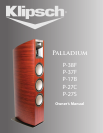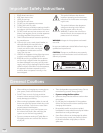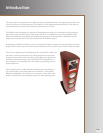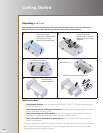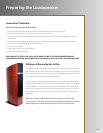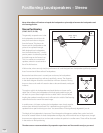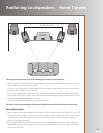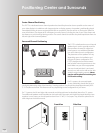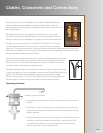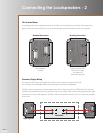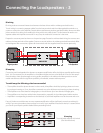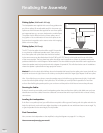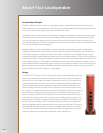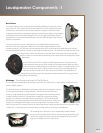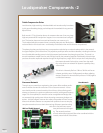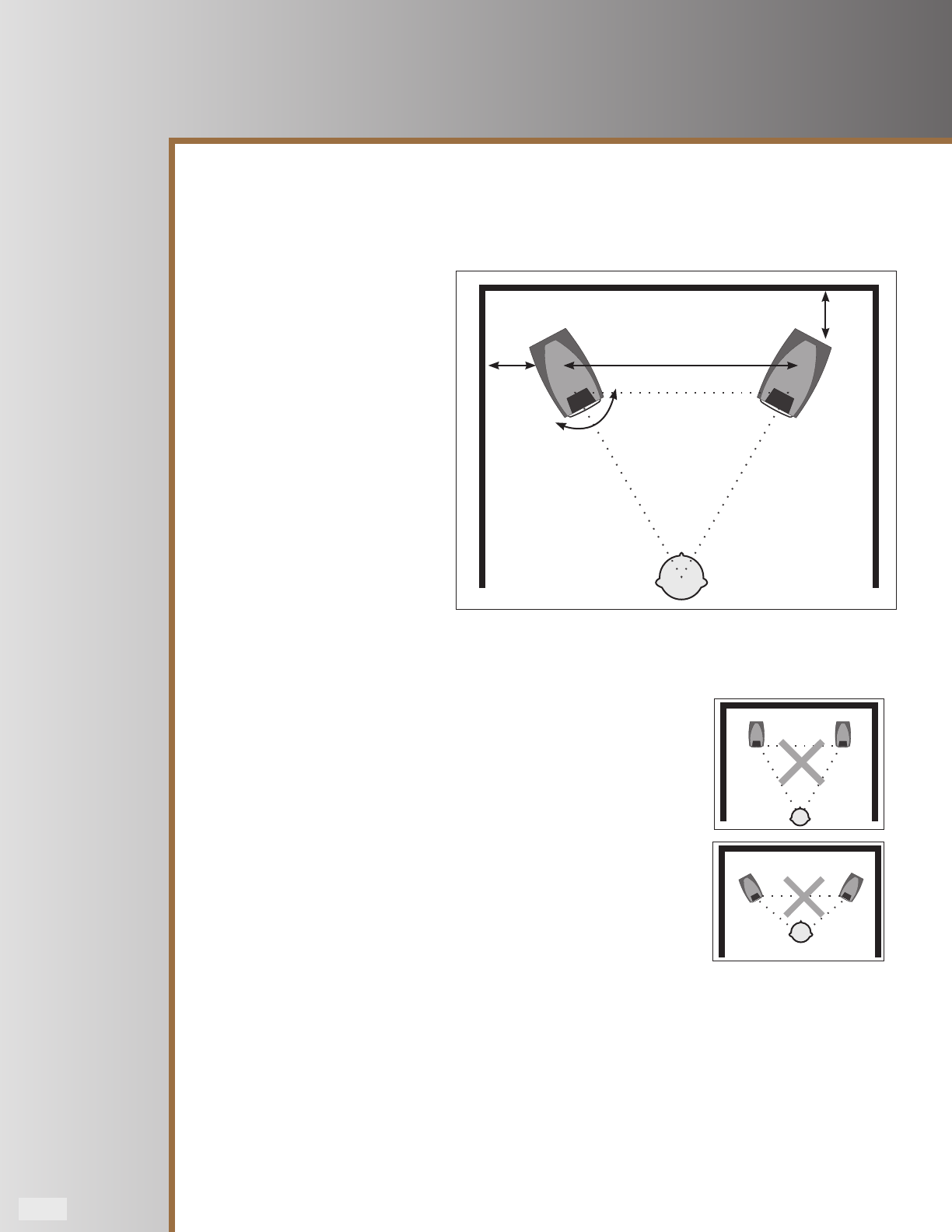
Page 6
Positioning Loudspeakers - Stereo
Never allow objects of furniture to impede the loudspeaker or place objects between the loudspeakers and
the listening position.
StereoPositioning
(P-38F / P-37F / P-17B)
The generally accepted norm is that
the loudspeakers should be as far
away from each other as they are
from the listener. This places the
listener and the loudspeakers at the
points of an equilateral triangle.
Well-designed horn loudspeakers
have “controlled directivity” - the dis-
persion pattern is tailored to provide
the ideal image at the listener’s ear.
This is in contrast to conventional
speakers, where the sound tends to
re o in all directions.
It follows that, when correctly sited, the performance of a well designed horn loudspeaker signicantly exceeds
that of conventional “direct radiator” loudspeakers.
Because the bass drivers are in a tuned port enclosure, the loudspeakers
must be operated away from walls and, specically, corners. The distances
in the above diagram should be considered as minimum distances. Placing
them too close to the walls will cause the bass to become bloated, muddy and
indistinct.
The angle at which the loudspeakers are placed relative to the rear wall is
called “toe-in”. Placing the loudspeakers with their backs parallel to the wall
will result in a poor stereo image with the so called ”hole in the wall” eect.
Angling the speakers inwardly too much will restrict the width of the listening
seat and also tend to narrow the stereo image.
In smaller rooms, it is better to place the loudspeakers more closely together
and set them relatively further back. This is preferable to placing the loud-
speakers further apart and sitting too close - the stereo eect will be signicantly degraded if you do.
The height of the loudspeaker is important. The midrange should appear to radiate from a point level with
the ears of a seated listener. As these loudspeakers are large, they will sound their best in large rooms, though
there are some adjustments that can be made to redress the position in smaller rooms. These will be discussed
in the section on nal positioning.
The above are our recommendations. Be prepared to experiment until the sound is exactly as you want!
(30 cm)
8’ - 16’
>12”
>8”
5
º
- 40
º
(2.4 m - 4.9 m)
(20 cm)



